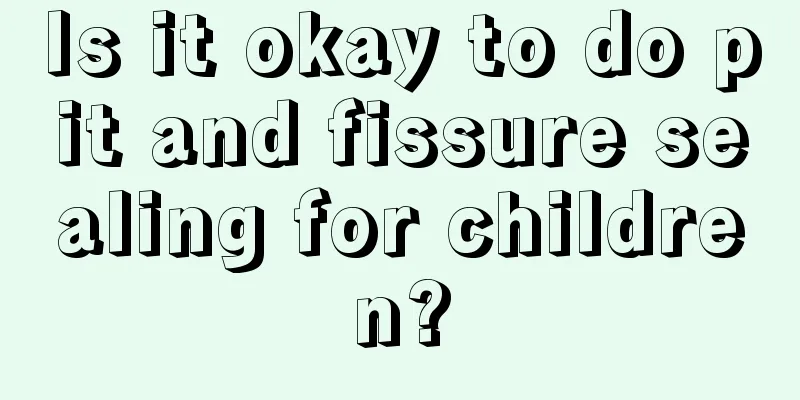4 month old baby drooling

|
It is normal for children under one year old to drool, because babies secrete a lot of saliva and cannot control it well, so the saliva will gradually increase around four months, and even more at 6 to 7 months. If the drooling continues after one year old and the amount of saliva is particularly large each time, you should be careful as there may be some disease factors that need to be checked. When does your baby drool more? Every baby drools, but the drooling situation varies at different stages of the baby's life. Newborn baby: less saliva Saliva is the common name for saliva. Babies have relatively less saliva after birth. The function of their salivary glands is not perfect at this time, and breast milk and formula milk do not stimulate their glands strongly. 4 months: Saliva begins to increase 1. The stimulation of adding complementary food. After four months, saliva will often flow from the corners of the child's mouth. For some babies, breast milk or formula milk can no longer meet the body's needs, and rice cereal, rice paste, etc. begin to become children's supplementary foods, which have relatively greater stimulation to the salivary glands. Children's mouths are small and cannot accommodate large amounts of saliva. In addition, their swallowing ability is poor, so saliva flows out naturally. 2. The stimulation of bad habits. At the same time, children may develop habits such as sucking their fingers and pacifiers, which also affect the salivary glands. 6-7 months: Increased drooling At six or seven months, the teeth begin to bulge out and the amount of saliva of the child will increase. When teeth grow, the baby's gums will swell and the surrounding nerves will be stimulated, thus inducing the secretion of salivary glands. Reasons why babies drool Drooling is a common symptom in babies. In addition to some well-known factors, there are some other reasons. Parents should have a comprehensive understanding of them! 1. Oral problems (1) Imperfect oral function. Imperfect body functions are the prominent feature of babies, and the leakage of saliva in children is attributed to imperfect oral functions. At this time, the child's mouth is small and shallow, causing saliva to flow out easily. The nervous system that regulates swallowing is not perfect, and it is difficult for children to reduce the amount of saliva by swallowing. (2) Food residues. Some children wake up with a wet, yellowish area on their pillow that tastes salty. This is most likely caused by oral problems. Most babies do not have the habit of brushing their teeth, so there is a lot of food residue in their mouths. Many children will suffer from tooth decay, gingivitis, etc., and the amount of saliva in their mouths will also increase. (3) Bacterial growth. The temperature of the mouth can provide a breeding ground for bacteria. Once the mouth is invaded by bacteria, it will cause pain, which will stimulate the salivary glands. 2. External stimulation (1) Solid food. When your child starts eating solid food, your baby's mouth is no longer as dry as before, and the amount of saliva will increase. The salivary glands will secrete a large amount of saliva under the stimulation of complementary food. (2) Bad habits. If babies often put their fingers or small objects in their mouths, it will also stimulate the salivary glands. drug. Medications are also a major cause of increased drooling. For example, some babies will drool unconsciously when taking epilepsy medications. 3. Dental problems (1) Long teeth. When a child starts teething, their mouth becomes flooded with saliva. At this time, the deciduous teeth break through the restrictions of the gums and grow outward, and the gums will feel painful. Since the nerves in the oral cavity are a whole, the nerves in the salivary glands will also react, causing their secretion. (2) Buck teeth. Some babies have difficulty closing their lips when sleeping, and drool often flows out. Often these children have front teeth that protrude so far forward that they are difficult to be covered by the lips. |
>>: What should I do if my baby has an upper respiratory tract viral infection?
Recommend
How long does it take for a baby to be in danger if he falls on his head?
Babies love sports very much and have plenty of e...
Symptoms of urinary tract infection in little girls
The incidence of urinary tract infection among li...
What is the height and weight standard for a 2-year-old boy?
Maybe everyone is not very clear about the height...
Is herpes virus contagious in children?
Children's physical resistance is relatively ...
How do children remove blackheads?
Adult women are more likely to get blackheads. In...
What to do if your child has dry and itchy skin
Children's skin is relatively delicate and ea...
How to heat baby food?
We all know that for the sake of health, unless i...
Baby coughs and smells bad in mouth
It is difficult to avoid children catching colds ...
Baby's fingers are fleshy and prone to wrinkles
The baby's fingers are chubby and very cute. ...
Symptoms of childhood variant asthma
Many parents are very concerned about their child...
Is it normal for little girls to have discharge?
Some little girls will find that they have secret...
What to do if a 7-year-old child has a picky eater
Children's picky eating habits are a headache...
Why do toddlers yawn?
During the daily growth process of young children...
Is it a problem if a newborn baby doesn't eat at night?
If a newborn baby does not eat at night, parents ...
Should babies take anti-inflammatory medicine before or after meals?
Various types of anti-inflammatory drugs are comm...









